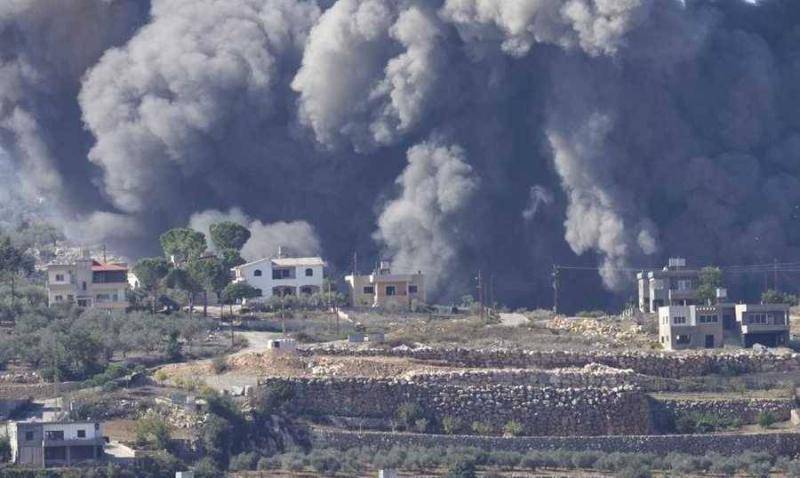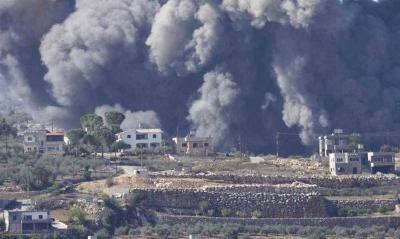On March 19, the United Nations Special Coordinator in Lebanon, Joanna Fronteka, briefed the Security Council about the explosive military situation in southern Lebanon, considering that repeated violations of Resolution 1701 increase the risks of miscalculation and worsen the current critical situation. She noted that it is no longer sufficient to return to the relative calm and stability that prevailed before October 8, 2022, prior to Hezbollah's engagement in the distraction war with the Israeli army in support of Gaza, following the start of the brutal Israeli war on the sector as a reprisal for Hamas's "Al-Aqsa Flood" operation.
There is no explanation for these remarks other than one: UN agencies now consider that returning to the enforcement of the part of the international resolution that was in force since 2006 until the escalation over five months ago—namely, a ceasefire—is no longer viable. During a stage of negotiations for a ceasefire in the south, mediated by American envoy Amos Hochstein, discussions were held on the possibility of restricting the treatment to restarting the ceasefire under the title of returning to the situation before October 8, as a prelude to addressing other items included in the resolution: Israeli aerial violations, borders, Israeli withdrawals, arms and armed groups south of the Litani River, commitment to deploying the army in accordance with the Lebanese government's obligations, and the truce agreement between Lebanon and Israel as stated in "Nidaa Al-Watan."
Hochstein wanted to defuse the explosive situation. On the Lebanese side, there was a belief that Hezbollah's continued linking of the ceasefire discussion to halting the war on Gaza would prevent a deep dive into the full application of the international resolution. Some believed that expectations regarding negotiations for a truce in the south should be lowered because even if a ceasefire in Gaza is reached, Israel would not cease its violations through aerial sorties to monitor the positioning of the resistance and the transfer of its weapons.
Perhaps some considered that the incentive for the party to accept a cessation of hostilities, without raising the issue of withdrawing its forces north of the Litani River—by applying the equation that existed before October 8—was to keep its weapons in its south in a non-visible manner until the actual negotiation time arrived. Despite the Lebanese insistence reiterated by Foreign Minister Abdullah Bou Habib on the need to strive for a sustainable solution through the full implementation of the international resolution from both sides, aspiring for a radical treatment of the explosive situation at the border, taking advantage of Hochstein's mediation efforts, and the declaration by Hezbollah's Secretary-General Mr. Hassan Nasrallah that there is an opportunity for Lebanon to reclaim its occupied land, the situation appeared more complicated due to the party's linking of the southern front with the open Gaza front, which is subject to various escalatory possibilities.
Responsible Lebanese parties did not hide their impression that the ongoing invisible Hezbollah weapons south of the Litani might continue to serve as a protective card for the south against any escalatory possibilities after the ceasefire, related to Gaza. Thinking about partial solutions remained theoretical before the southern front succumbed to waves of escalation like those witnessed in recent days, from Bekaa, to the southern Lebanese border towns of Al-Habbariyeh and Naqoura, to the Israeli fronts of Kiryat Shmona and the occupied Golan Heights.
The ineffectiveness of partial solutions led Fronteka to tell Security Council members that a political process based on the full implementation of Resolution 1701, aimed at addressing the root causes of the conflict and ensuring long-term stability, has become necessary. The information available to international parties seeking to calm the situation in the south, such as Paris, Washington, and New York, indicates that the Israeli government intends to return residents of northern Israel to their settlements before August, prior to the start of the next school year.
Consequently, Lebanon faces three dangerous months before that time, providing a window to prevent an explosion on its southern front. Relying on the ongoing American-Israeli disagreements to continue the calculated war thus far could be an act of uncalculated gambling by Hezbollah, according to "Nidaa Al-Watan."




